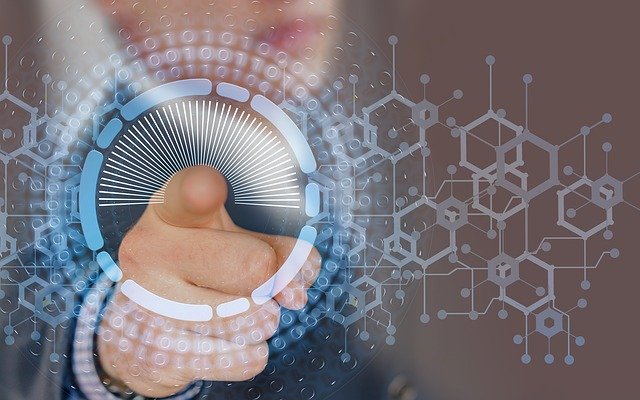TECHNOLOGY
All Cyber Security Trends in 2024

Cybersecurity is an industry that is rapidly evolving, and for many, this makes it difficult to stay up to date with the latest trends and exactly what is happening when it comes to cybercrime and security measures. But across the globe, it’s never been more important for professionals in all industries to stay up to date with the latest cybersecurity trends and follow industry news in order to ensure that their data is kept as secure as possible.
Cybercriminals are constantly searching for new, more sophisticated ways to commit crime, and the industry is being constantly updated in order to combat this. Here are some of the biggest cybersecurity trends right now.
Comprehensive list of expected cybersecurity trends for 2024
AI and Machine Learning in Defense
The use of artificial intelligence (AI) and machine learning (ML) in cybersecurity defenses will become more sophisticated, helping to predict and prevent attacks before they happen by analyzing patterns and anomalies in data.
Increased Threat from AI-powered Attacks
Conversely, cybercriminals will also leverage AI and ML to conduct more sophisticated and targeted attacks, including phishing, social engineering, and malware campaigns.
Rise of Quantum Computing Threats
As quantum computing continues to develop, its potential to break traditional encryption methods could pose a significant threat, prompting a shift towards quantum-resistant cryptography.
Expansion of IoT Vulnerabilities
The Internet of Things (IoT) will continue to expand, connecting more devices than ever. This will increase the attack surface for cybercriminals, highlighting the need for robust IoT security measures.
5G Network Security Challenges
The widespread adoption of 5G networks will offer faster connectivity but also introduce new security challenges, including increased attack surfaces and potential vulnerabilities in the network infrastructure.
Supply Chain Attacks
Cybersecurity threats targeting the supply chain will become more common, as attackers exploit vulnerabilities in third-party services and software to compromise their primary targets.
Zero Trust Architecture Adoption
The adoption of Zero Trust security models, which assume that threats could be internal or external and verify everything trying to connect to the system before granting access, will increase.
Cloud Security Focus
With more businesses moving to the cloud, securing cloud environments will be a top priority. This includes addressing misconfigurations and ensuring compliance with industry standards.
Ransomware Evolution
Ransomware attacks will continue to evolve, targeting larger organizations and critical infrastructure with more sophisticated and damaging techniques.
Deepfakes and Disinformation
The use of deepfakes and disinformation in cyberattacks will increase, posing challenges for verifying the authenticity of information and protecting against identity theft and fraud.
Cybersecurity Skills Gap
The demand for skilled cybersecurity professionals will continue to outpace supply, emphasizing the need for automated security solutions and increased cybersecurity training and education.
Insider Threat Detection
Organizations will focus more on detecting and preventing insider threats, using AI and behavior analysis to monitor for suspicious activities within their networks.
Mobile Security Threats
As mobile device usage continues to rise, so will mobile security threats, including mobile phishing, app-based malware, and man-in-the-middle attacks on unsecured Wi-Fi networks.
Blockchain for Security
Blockchain technology will be increasingly adopted for its potential to enhance security in various applications, including secure transactions, identity management, and supply chain security.
General Security Trends
Increase in Cybercrime
Cybercrime is not going anywhere – in fact, it’s getting bigger and bigger. In 2018, cyberattack frequencies rose at a very disturbing rate across the world and hackers are even taking advantage of the current coronavirus crisis in 2020. With cybercriminals making an estimated $1.5 trillion in profits from their crimes in 2018, it’s never been more important to ensure strong protection of systems and data. An increasing number of businesses are reporting attempted and successful hacks and data breaches, and small to medium enterprises are becoming bigger targets than ever before.
Cloud Computing
Cloud computing is now a very standard aspect of IT and there are millions of businesses in every different industry around the world using the cloud to store data, much of which is very sensitive. Because of this, it’s never been more important to ensure that cloud computing and cloud storage is well-protected and secure. Cloud computing has brought about several advantages for the businesses that use it, allowing them to remain competitive in a market that is becoming more and more digital. However, many companies use third-party vendors for cloud computing, which means that they need to know exactly where data is stored and who has access to it.
Increased Data Protection
Data protection laws around the world are increasing, particularly since the GDPR legislation was introduced in 2018 by the European Union. Around the world, there was a huge global campaign for better data protection following a range of scandals from huge names like Facebook that took the news headlines by storm. The rest of the world has started to follow in the footsteps of the EU, where companies who overlook the stringent data protection laws face large fines and significant damage to their business reputation.
Professional Skills Shortage
Millions of positions in cybersecurity still remain unfilled as companies struggle to find professionals who can handle the growing need for security and ever-changing trends. As a result of this shortage of professional skills and knowledge, companies are turning to artificial intelligence to ensure that cybersecurity needs and necessities are being met. This is working well since artificial intelligence is now so advanced that it is able to easily take over and complete tasks that are repetitive and time-consuming for humans within seconds. As a result, the need for human professionals is no longer as great, as humans are only needed in order to focus on more serious anomalies or threats rather than repetitive admin work.

